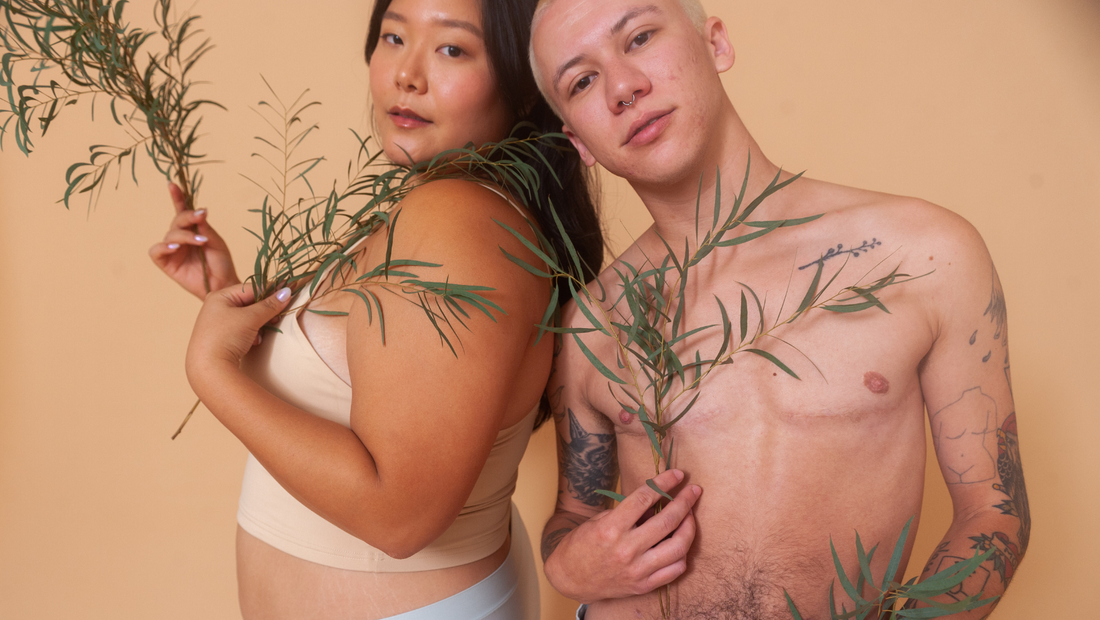
Pride's Proud Roots in Riot
Share
This article was originally published in June of 2020, amidst the beginning of the pandemic and the boom of #BlackLivesMatter protests. The ideas, however, hold just as true today as they did then. Liberation for all bodies, everywhere is a work in progress.
June marks the beginning of Pride — a month dedicated to honoring LGBTQ+ people, places, and things that affirm queer existence. Past years have bathed the world with colorful streams of rainbows and glitter to celebrate social progress and self-acceptance for queer folks.
This year, Pride is as profound than ever as it coincides with the ongoing protests against the genocide in Gaza, ICE raids and our continued fighting against systemic racism deeply rooted in the United States. The synchronicity calls back to the radical roots of Pride itself: the Stonewall Riots of 1969, which serve as a stark reminder that Pride began not as a party, parade, or celebration, but a riot.

Tommy Oliver @producertommy
In the early morning of June 28, 1969, lower Manhattan descended into chaos as the police raided the New York City gay bar known as the Stonewall Inn. Black transgender and queer patrons like Marsha P. Johnson, Sylvia Rivera, Stormé DeLarverie, and Miss Major were on the frontlines of protesting against the police, effectively mobilizing the modern day LGBTQ+ rights movement. A year later, the first annual Pride Parade wound its way through the city’s streets to commemorate this seminal uprising, marking the month of June as the month of Pride.
Yet, like other movements fighting for equality, Pride has been marred in classism, elitism, and racism. Within four years of Pride’s inception, “drag queens,” as transgender individuals were called then, were banned from the annual “gay” pride parade that Johnson and Rivera helped launch, the black trans* community and architects of the movement were all but erased.
Despite being led by gender nonconforming people of color, the Stonewall Riots (and the subsequent LGBTQ+ rights movement we know today) have been whitewashed throughout queer history, its present focus on white gay-centered events far removed from its not-so-humble beginnings.
Marsha P. Johnson — a self-identified drag queen & outspoken advocate & activist for gay liberation — is one of the most prominent figures in the Stonewall uprising of 1969.
This revisionist history of shamelessly downplaying the role black queer people played in leading the riots further sediments the fact that the privileges white queer people benefit from in a white supremacist society will always outweigh the marginalization they experience due to queerness.
Although LGBTQ+ issues and racial justice are not mutually exclusive, the month of Pride has never truly embraced pride for queer Black people. LGBTQ+ people of color must navigate a complicated network of systemic oppression on all sides, pushed to the fringes of both equality movements in the fight against homophobia and transphobia in Black communal spaces in addition to racism in all spaces.
White queer people and allies should be as loud and as proud about supporting Black liberation as LGBTQ+ liberation. We are all interconnected, but none of us can be truly free until everyone is free. Pride is, after all, a celebration of the right—and freedom—to live and love as we choose. No justice—no Pride.
Resources
Transgender Legal Defense & Education Fund (TLDEF)
Trans Women of Color Collective (TWCC)
Trans Equality Action Centers provides a comprehensive list of funds to donate to and bills under consideration where you can submit letters to state legislators or sign a petition)
Race, Gender, and American Gynecology by Dr. Deirdre Cooper Owens
Related Reading
Tips for Allies: How to be a Better Advocate for the LGBTQ Community
LGBTQIA + Z the Bug Interview with Z Walsh, model (he/him) @zthebug
Redefining Activism by Kénta Xiadani Ch'umil @kenta.chumil
The Radical Love + Laughter of Jari + Corey Profile on Jari Jones (she/her) + Corey Daniella Kempster (she/her) by Jen Winston (she/her) @girlpowersupply
Momotaro Apotheca and its materials are not intended to treat, diagnose, cure or prevent any disease. All material on Momotaro Apotheca is provided for educational purposes only. Always seek the advice of your physician or other qualified healthcare provider for any questions you have regarding a medical condition.


